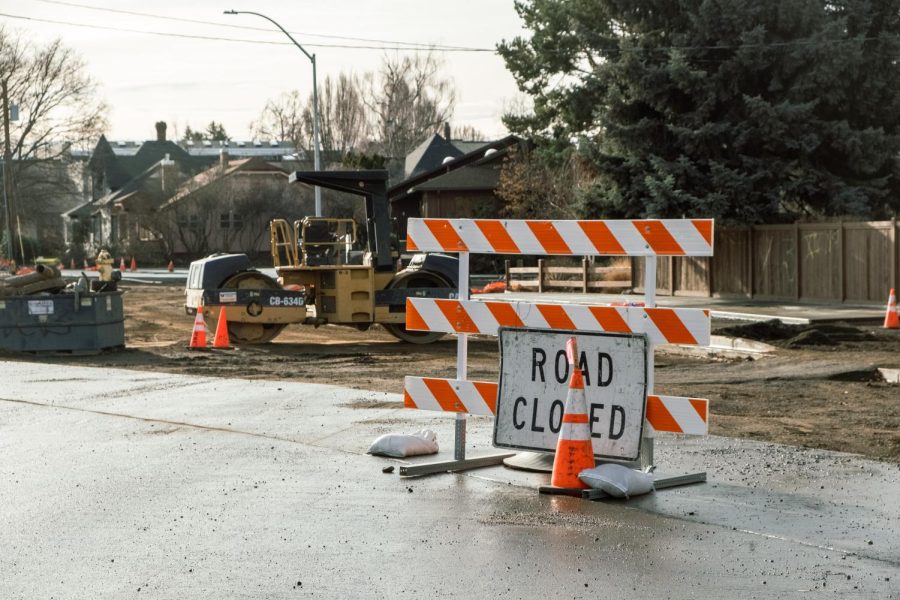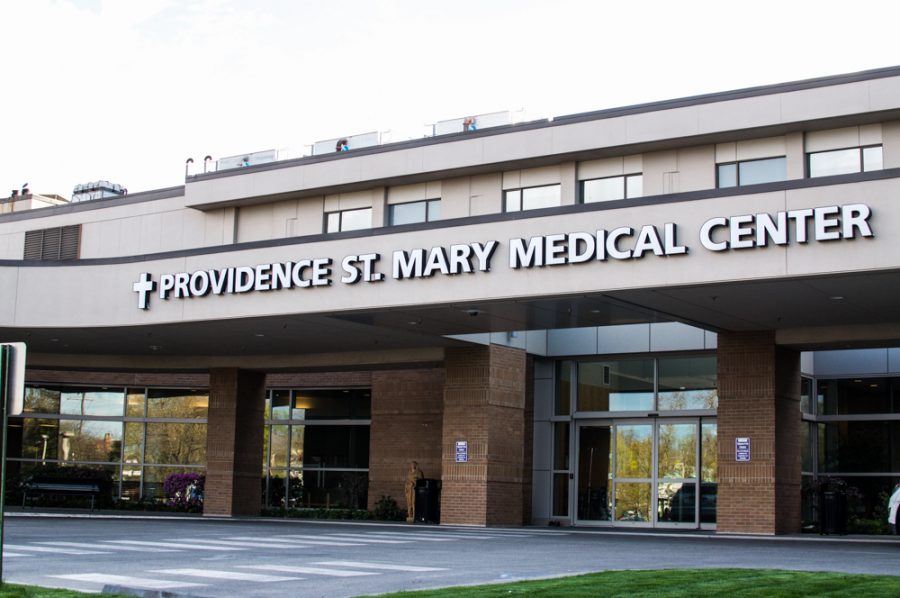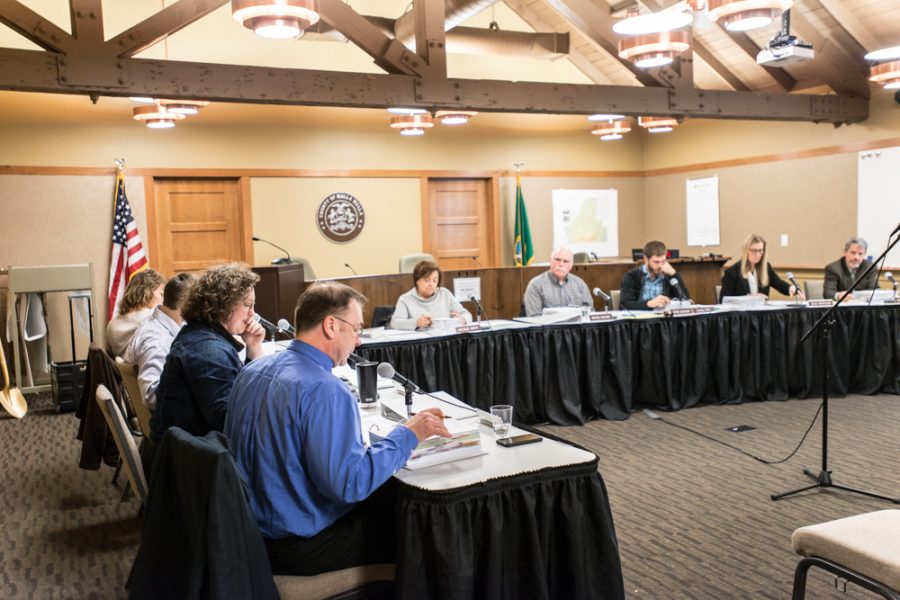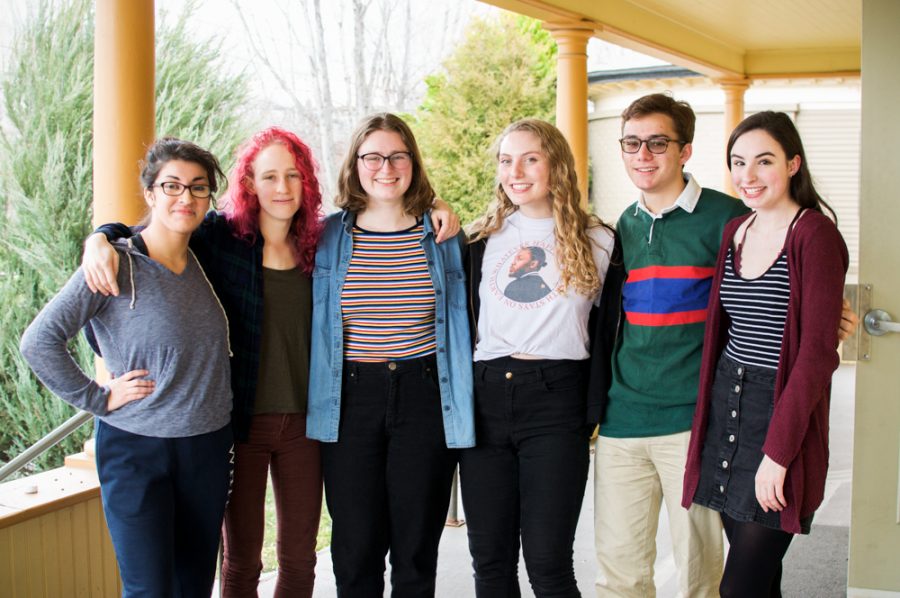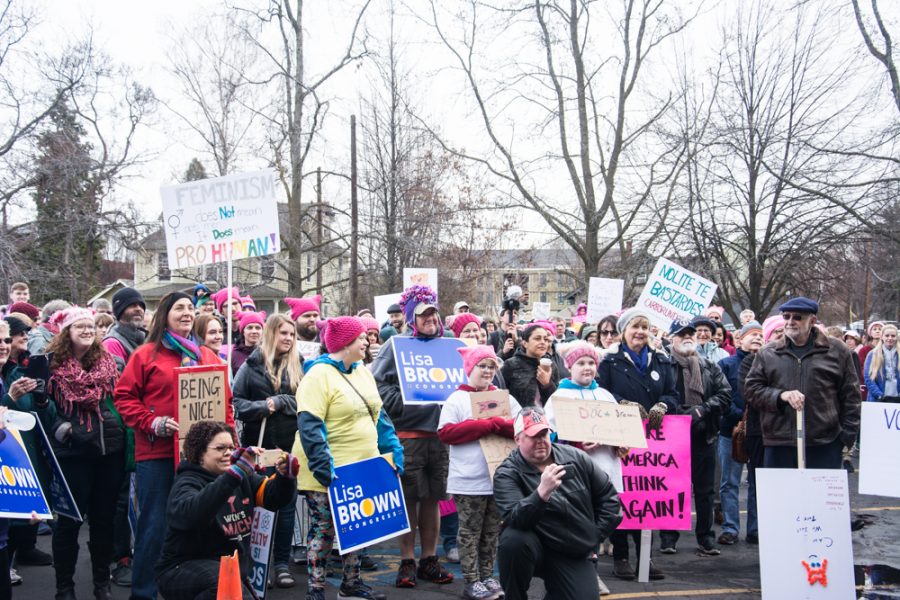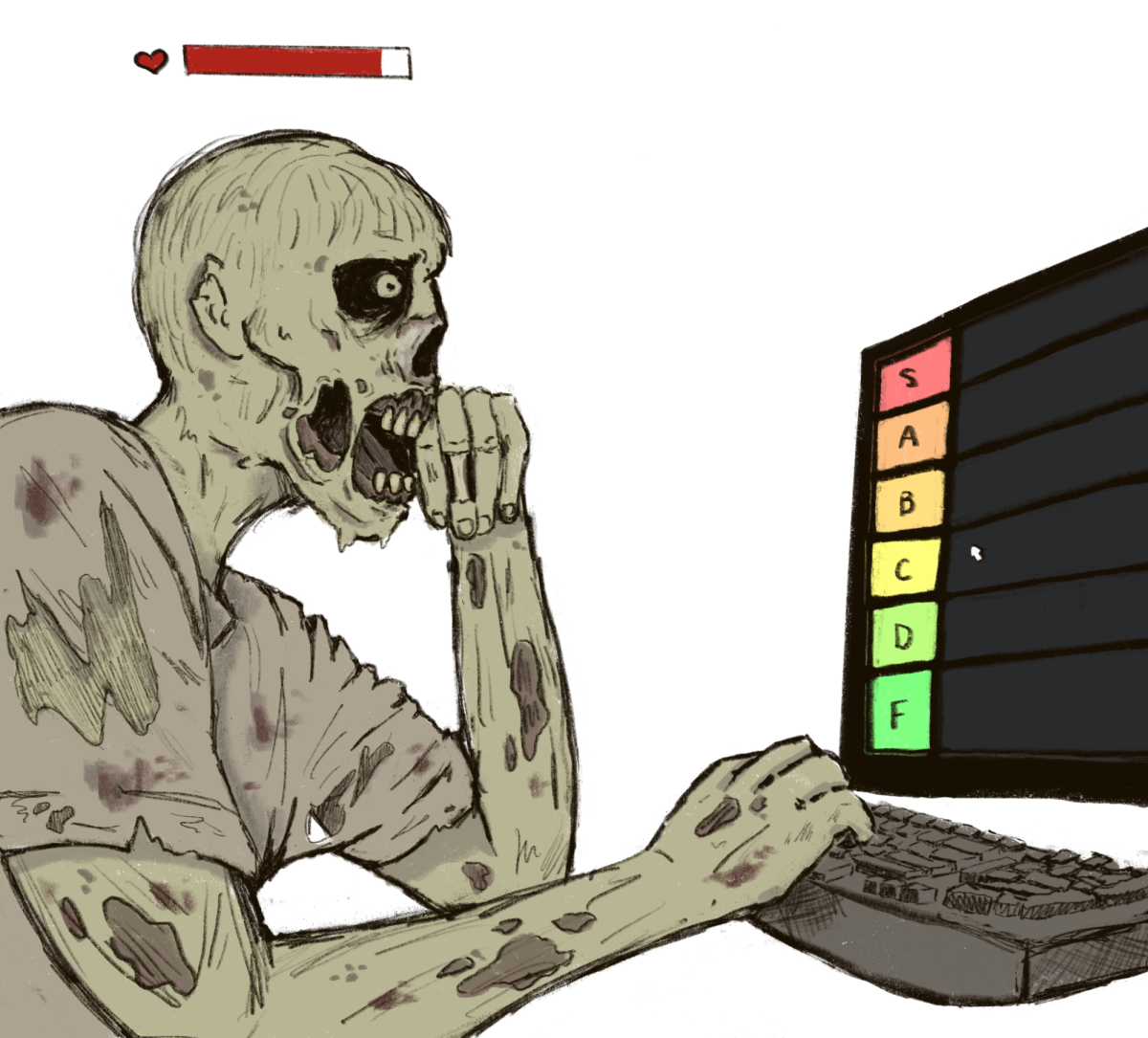
The Food Pantry of Walla Walla is tucked into the basement of the First Presbyterian Church on First Avenue and Poplar Street. This modest facility, taking up only two rooms of the church, is run by an equally modest volunteer community that works together to provide food for those in need. Tom Galloway, the food bank’s manager, speaks below an impressively groomed mustache in a slow and calculated drawl, listing his duties and his history in the food management business.
“I retired and moved to Washington and found that retirement wasn’t all it was cracked up to be,” said Galloway. “I have since learned that the people here appreciate the food more than the paying customers.”
The majority of the clientele that go to the Food Pantry for assistance are between the ages of 18 and 55. In the past month alone, the Pantry served 904 clients, 694 of whom were returning customers. The number of customers also increases at the end of the month, a time when food stamps and other social services are running low and extra assistance is needed.
“[Before working at the Pantry], I had never used or heard the term ‘working poor’ before, but there seems to be a lot of those,” said Galloway. “With the economy and the health issues happening now, I think we’re going to see more people.”
In the last week of October alone, the Pantry served 52 households –– one of the highest number of families served in one week ever. The question of why need has increased so much has an ambiguous answer. Who or what is the cause of inequality that creates this need for philanthropic assistance? Galloway believes that possibly the current turbulence within Health Care is causing more people to be laid off, as employers do not want to pay extra benefits for full-time employees.
Whatever the cause, Galloway states that there is a need, and Walla Walla’s food bank is one of the best in the area at accommodating that need.
“I think the people that need the help are pretty well taken care of in Walla Walla,” he said.
Walla Walla’s assistance for those in need include the Christian Aid Center which provides housing and meals, three food pantries and free soup lunches served at various churches Monday through Saturday.
Galloway seems to take pride in the ways in which the Food Pantry differentiates itself from its other food bank counterparts. Usually food banks only serve to customers with a food card, which they can receive through registering with Helpline, but the Food Pantry will serve anyone who comes to its door. Also, instead of giving a pre-made package to customers, Galloway makes a list of the food available to customers and allows them to choose what food they would like to receive.
“[The Food Pantry] started [giving menus] years ago because they used to hand out bags of food and they would find things like rice, or things people didn’t want on the stairs or driveway,” said Galloway.
Walla Walla runs on an interconnected food distribution network through the Blue Mountain Action Council (BMAC). BMAC receives food from local food drives, gleaning projects and grocery stores such as Albertson’s and Walmart, among other sources. The three food kitchens in Walla Walla then receive their food from BMAC. The Food Pantry in particular receives about 60 percent of its food from BMAC. They acquire the rest of their food with grants and donations from local churches.
One way in which Whitman College contributes to this process of food assistance is through the newly formed Gleaning Club. The Gleaning Club travels to farms where there is extra produce, harvests the crops and takes the food to BMAC, where BMAC employees distribute it accordingly. President of the Gleaning Club sophomore Sam Curtis recognizes the importance of acting for others, but he also wishes he could find a way to incorporate face-to-face contact with the people who receive the gleaned food.
“Doing any philanthropy, you can have some sort of satisfaction from it, but if you have a personally emotional experience by seeing who it benefits and how they need it is what gives you the passion to do it,” said Curtis.
Sophomores Alec Foote and Tate Jacobson are two other students whose actions contribute humanitarian goodness in Walla Walla. They took part in the biannual food can drive hosted by BMAC in October of 2012 by taking bags to houses and then returning and retrieving the bags filled with cans. While they commented on the difficulty of finding food bank volunteer opportunities, they think it’s important for students to incorporate volunteerism into their extracurricular activities on top of their academic commitments.
“I just feel that perspective is definitely important,” said Foote. “People get locked into their own lives too much and their own problems, and I feel like it would help them to open up a little and see that a lot of people have it worse than they do.”
Similarly, Jacobson stresses the importance of balance in a schedule full of schoolwork.
“Whitman is such an academic environment it seems that people’s time is 90 percent academic and 10 percent unwinding,” he said. “It would be nice if there was something to balance that.”
While the importance of volunteerism is a simple concept to digest, making time is not so easy. Galloway states that he has never had a Whitman student volunteer in the two years that he has been manager of the Food Pantry.
“We build a schedule around [the volunteer] availability and we need reliability with volunteers, and with students you don’t get reliability because they’re a lot busier than retirees,” said Galloway.
Walla Walla has a strong support network for those in need of assistance. The Whitman community, while it may prioritize academics, also attempts to interact with this community in its own way, whatever that way may be.






